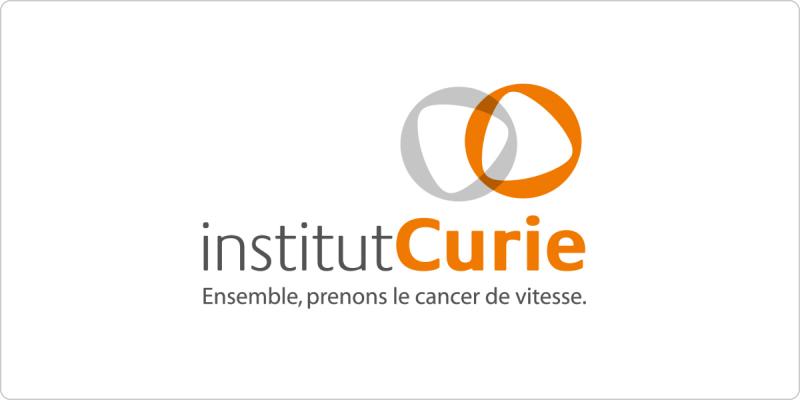Development of intranasal therapeutic mRNA vaccines
| ABG-134554 | Master internship | 6 months | 600 |
| 2025-11-26 |

- Biotechnology
- Biochemistry
- Biology
Employer organisation
The Curie Institute Research Center aims to understand the complex mechanisms of living systems. Its strong basic research drives efficient translational research and major innovations against cancer. Scientific work spans from single cells, normal or cancerous, to whole organisms, enabling new therapeutic development. The Center brings together top scientists in 87 multidisciplinary teams supported by 19 cutting-edge platforms. Its culture of interdisciplinarity links biology with chemistry, physics, computer science, and mathematics to advance cancer research.
Description
The landscape of cancer immunotherapy has evolved profoundly over recent decades, reshaping the approach to cancer treatment. Unlike conventional therapies such as chemotherapy or radiotherapy, which directly target tumor cells, immunotherapy stimulates the host immune system to recognize, attack, and eliminate malignant cells. Therapeutic cancer vaccines aim to elicit antitumor immune responses in tumors lacking pre-existing specific tumor reactive T cells. Dendritic cells (DCs), through their ability to cross-present antigens to naïve cytotoxic T lymphocytes (CTLs), represent a key target for vaccination.
Mucosal surfaces are constantly exposed to environmental trauma, and are more exposed to infections, chronic inflammation, or mutational burden. Mucosal immunity is characterized by the production of secretory IgA antibodies and the presence of tissue-resident lymphocytes (Trm). The aim of mucosal immunization is to induce these responses in order to block infections directly at pathogen entry sites and/or generate antigen-specific T cells and Trm responses against mucosal cancers (e.g. lung cancer, head and neck cancers).
Messenger RNA vaccines have gained substantial attention since the COVID-19 pandemic, particularly for their capacity to encoded multiple antigens without the constrains of protein or peptide purification and solubility. Current licensed and clinical-stage mRNA vaccines induce strong systemic immune responses following intramuscular or intravenous administration, against viral infections as well as different types of solid tumors. However, induced immunity at mucosal level, especially in the respiratory tract remains limited, and intranasal delivery of mRNA represent a challenge to trigger potent mucosal immunity.
Objectives:
This internship aims to develop therapeutic mRNA vaccines suitable for intranasal delivery. In parallel, the selected candidate will contribute to the development of protein-based subunit vaccines targeting lung cancer antigens or others mucosal infections/tumors.
Key references
Pardi, N. (2018). mRNA vaccines — a new era in vaccinology. Nature Reviews Drug Discovery, 17(4), 261–279.
Pandey, A. (2025). Intranasal mRNA vaccines: Targeting mucosal immunity through optimized delivery. Molecular Therapy Nucleic Acids, 36(3), 102654.
Billet, A. (2023). A synthetic delivery vector for mucosal vaccination. Biomaterials, 302.
Nizard, M. (2017). Induction of resident memory T cells enhances the efficacy of cancer vaccine. Nature Communications, 8(1), 15221.
Sandoval, F. (2013). Mucosal imprinting of vaccine-induced CD8+ T cells is crucial to inhibit the growth of mucosal tumors. Science Translational Medicine, 5(172).
Profile
Candidate profile
Master’s student (M2) in molecular biology, immunology, or biochemistry with strong interest in interdisciplinary research, and wanting to pursue a PhD.
Techniques involved
Cell culture, Western blots, Confocal microscopy, Flow cytometry, Click chemistry, Protein folding and purification, in vitro transcription, Cloning, Lipid nanoparticle (LNP) formulation, Peptide synthesis.
Starting date
Vous avez déjà un compte ?
Nouvel utilisateur ?
Get ABG’s monthly newsletters including news, job offers, grants & fellowships and a selection of relevant events…
Discover our members
 ONERA - The French Aerospace Lab
ONERA - The French Aerospace Lab  Institut Sup'biotech de Paris
Institut Sup'biotech de Paris  Généthon
Généthon  ADEME
ADEME  TotalEnergies
TotalEnergies  Nokia Bell Labs France
Nokia Bell Labs France  Servier
Servier  Nantes Université
Nantes Université  Medicen Paris Region
Medicen Paris Region  SUEZ
SUEZ  Ifremer
Ifremer  Tecknowmetrix
Tecknowmetrix  Aérocentre, Pôle d'excellence régional
Aérocentre, Pôle d'excellence régional  Groupe AFNOR - Association française de normalisation
Groupe AFNOR - Association française de normalisation  ANRT
ANRT  ASNR - Autorité de sûreté nucléaire et de radioprotection - Siège
ASNR - Autorité de sûreté nucléaire et de radioprotection - Siège  Laboratoire National de Métrologie et d'Essais - LNE
Laboratoire National de Métrologie et d'Essais - LNE
